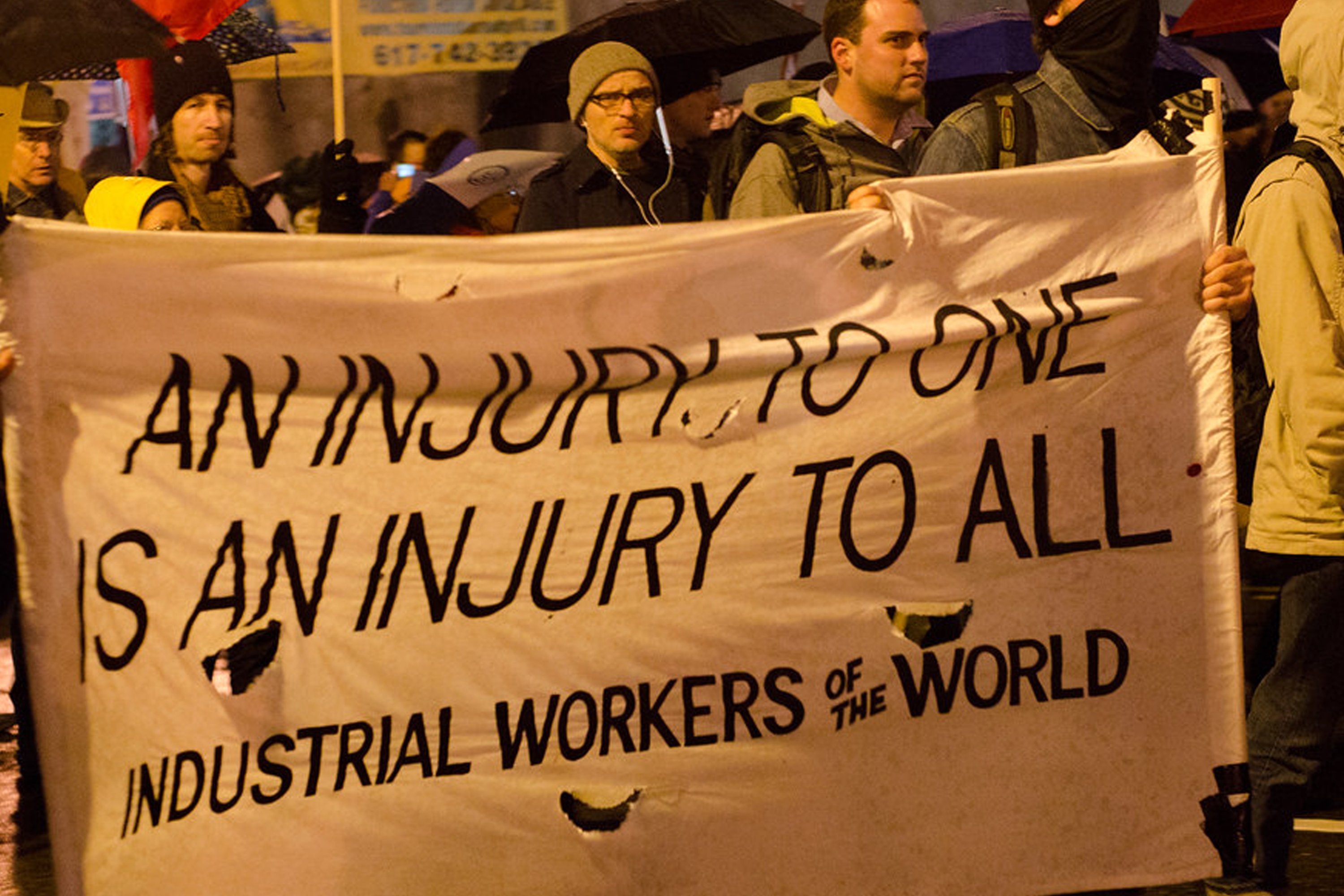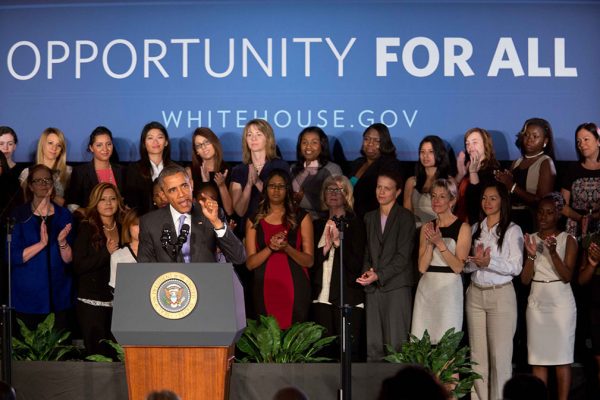Mie Inouye rightly sounds a note of disillusionment regarding the legacy of the 2020 uprisings. With the exception of small numbers of activists and hopeful moments like this summer of strikes in the United States, today’s efforts in mass struggle—even on the other side of the largest street protests in U.S. history—pale in comparison to the enormous powers of socialist and communist parties, militant labor unions, and anticolonial movements of the past. Current movements do not generate enduring organizations that integrate local struggles into a social force. To solve this problem, Inouye invites us to forge stronger bonds of solidarity.
But among whom, exactly? One possibility is everyone in our disintegrating society, or even all mankind. After all, over the past few decades, social connections have thinned and kept on thinning; we are far more disconnected than in the 1990s. Inouye seems to have a narrower audience in mind: not all of humanity, nor a national political community, but potential members in a party or political organization.
On this front, there are two quite different groups of potential partisans we might seek to reach, or rather to call into existence, with the language of solidarity. On the one hand, there are those who might be part of a militant minority—people who dedicate themselves wholly and completely to the cause. On the other hand, there are those who take time from their normal lives to strike, contribute, vote, march, and hopefully discipline the organization that represents and leads them. There is no emancipatory struggle without both groups, but they are bound by different ties.
The famous slogan “an injury to one is an injury to all” sheds light on the second kind of solidarity, the sort that can hold masses together in common struggle. Now a common phrase on the left, it was first made popular by the Knights of Labor, who emblazoned a version of it on their official logo and successfully united white and Black men and women together in the largest interracial political organization of workers in the nineteenth century. The idea entails a range of actions we associate with solidarity: don’t cross the picket line, even if you need the job or goods on the other side; contribute money or time to the strike, even if you had other plans; go out on sympathy strike, even if that comes with a risk to your job, family, or well-being.
What makes these sorts of ties possible? Not just shared “ideology,” as Inouye puts it, as shared injury: a specific harm to a person in virtue of their membership in an oppressed group. Injury to any one worker—in the form of dangerous conditions, inadequate pay, or demeaning treatment—is an affront to all who are subject to the power of bosses, for example. The proper response to such injury is the collective exercise of power against collective subjection. That self-emancipatory action creates and reinforces the sense of shared fate and possibility.
Inouye’s invocation of ideology points more to the other sort of solidarity: the tighter, closer-knit bonds among the militant minority. An ideologically coherent political party offers its members something more than anything the current left offers: the solidarity of a self-transforming belonging. This is not just the fellow feeling that comes with ordinary membership in a group; it is particular to embattled organizations that make extreme demands on their members and whose aspirations are impractical. The extremity of demand, and knowledge that each is voluntarily submitting to it, play a key role in its special kind of solidarity.
Consider Vivian Gornick’s interviews with former members of the Communist Party USA in The Romance of American Communism (1977). Gornick observes the seemingly paradoxical fact that disciplined commitment to party life expanded each individual’s sense of self. Party life was “one of the most amazing of humanizing processes,” she writes: “that process whereby one emerges by merging; whereby one experiences oneself through an idea of the self beyond the self and one becomes free, whole, and separate through the mysterious agency of a disciplining context.” Reviewing the recent rerelease of Gornick’s book, political theorist Corey Robin observes that the bond of political commitment offers not just unity across difference but a whole new kind of personhood. We become joined to others not just by abstract purpose but a public happiness—“the joy of collective action and the enjoyment of one another.”
Yet much in our current culture seems to resist this call for total self-transformation, this “merging” with others. Inouye embraces transformation up to a point; she calls solidarity “the choice to bump up against other people . . . and allow oneself to be changed by the impact.” But she also says that the “promise of coalition is that we can work together across difference to change the prevailing social arrangement without fully transcending the ways that it differentiates us and even pits us against each other.” Why not transcend difference? World-changing political work is a life-defining activity in which we put aside who we are and live as a professional revolutionary, party member, or comrade, and we do so with others for whom the cause is also life-defining. This commitment isn’t just one thing you happen to have in common. It will be the most important thing—a bond that makes all differences trivial.
This sort of solidarity requires more than the “epistemic humility” Inouye prescribes: it means becoming someone else entirely. The new self that emerges is capable of things only because others are also acting with them. Indeed, these new capacities, and therefore oneself, rely heavily on trust in others. When others do their part, the results are thrilling—in part because each trusted each other. This kind of collective achievement is hard to come by, especially in a society as atomized, calculating, and fragmented as ours.
I suspect this helps to explain the perennial debates over “identity politics” on the left. These fights, I think, are ciphers for the problem of trust. Depending on the space, white people, or straight people, or cis people, or white women, or gay men, or whomever are viewed as potentially risky “allies,” rarely, if ever, to be fully trusted—perhaps even destined to harm or betray us. Every conversation becomes a test of informal norms of interaction, and violations are all too regularly sharply and publicly punished. The best we get, as a result, is a limited alliance or coalition, constantly policing boundaries that are not to be crossed or dissolved. The effect is that each keeps each other at a strategic arm’s length, standing at the intersections of oppression but walking on opposite sides of the road.
The trouble is not just that this form of relation can be joyless but that distrust and uncertainty corrode solidarity. What is left but to retreat back into the very identities that we ought to be transcending? Inouye is right to see a distinctive kind of solidarity at work in religious groups, where people don’t just count on each other but overcome their differences. The premise is universal: whatever else you are, whatever your flaws, you are—or at least, can become—one of us. The language of universalism no doubt can hide exclusions in practice, but many religious organizations appear to be doing a better job than contemporary left movements at living up to the ideal.
The left does not need religion, but it could take a page from religion’s success in this regard. Following the lead of figures like Karen and Barbara Fields, philosopher Paul Gomberg proposes that we see existing identities as real but alien impositions of an unjust society. If that’s right, developing the sort of solidarity we need to change the world may require dispensing with rather than deferring to the identities we have inherited, precisely in order to forge more just and joyful ones. The left will need to ask more so that it can offer more, and to offer more by asking more—perhaps everything—of itself.








